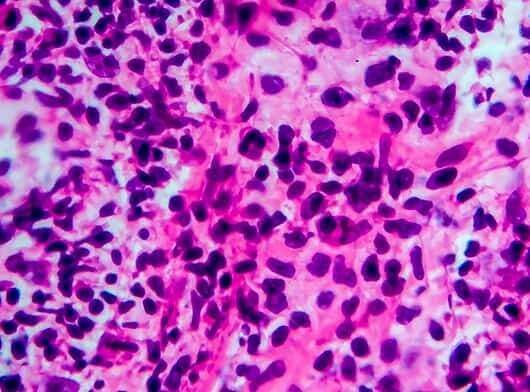The goal of treatment is to destroy as many cancer cells as possible and bring the disease into remission.
Treatment options and recommendations depend on several factors, including:
- The type and stage of lzzymphoma.
- Possible side effects of the treatment(s)
- Results of regular PET-CT scans during treatment
- The patient’s preferences and overall health
- Chemotherapy
- Radiation
- Bone marrow transplant
- Immunotherapy
Chemotherapy is a drug treatment that uses chemicals to kill lymphoma cells. Chemotherapy drugs travel through your bloodstream and can reach nearly all areas of your body.
- Chemotherapy is often combined with radiation therapy in people with early-stage classical type Hodgkin's lymphoma.. Radiation therapy is typically done after chemotherapy. In advanced Hodgkin's lymphoma, chemotherapy may be used alone or combined with radiation therapy.
- Chemotherapy drugs can be taken in pill form or through a vein in your arm, or sometimes both methods of administration are used. Several combinations of chemotherapy drugs are used to treat Hodgkin's lymphoma.
- Side effects of chemotherapy depend on the drugs you are given. Common side effects are nausea, vomiting, generalized weakness and hair loss. Serious long-term complications can occur, such as heart damage, lung damage, fertility problems and other cancers, such as leukemia.
- Radiation therapy uses high-energy beams, such as X-rays and protons, to kill cancer cells. For classical Hodgkin's lymphoma, radiation therapy is often used after chemotherapy. People with early-stage nodular lymphocyte-predominant Hodgkin's lymphoma may undergo radiation therapy alone.
- During radiation therapy, you lie on a table and a large machine moves around you, directing the energy beams to specific points on your body. Radiation can be aimed at affected lymph nodes and the nearby area of nodes where the disease might progress. The length of radiation treatment varies, depending on the stage of the disease. A typical treatment plan might have you going to the hospital or clinic five days a week for several weeks. At each visit, you undergo a 30-minute radiation treatment.
- Radiation therapy can cause skin redness and hair loss at the site where the radiation is aimed. Many people experience fatigue during radiation therapy. More-serious risks include heart disease, stroke, thyroid problems, infertility and other cancers, such as breast or lung cancer.
- BMT is considered in patients who do not achieve complete clearance of disease at the end of one line of therapy or relapse disease. Most of the time in Lymphoma, transplant is done with your own stem cells called Auto transplant.
-
Bone marrow transplant, also known as stem cell transplant, is a treatment to replace your diseased bone marrow with healthy stem cells that help you grow new bone marrow. A bone marrow transplant may be an option if Hodgkin's lymphoma returns despite treatment.
- During a bone marrow transplant, your own blood stem cells are removed, frozen and stored for later use. Next you receive high-dose chemotherapy and/or radiation therapy to destroy cancerous cells in your body. Finally your stem cells are thawed and injected into your body through your veins. The stem cells help build healthy bone marrow.
- Immunotherapy drugs and treatments are designed to help stimulate the immune system or to help immune cells better identify and attack cancer cells. Checkpoint inhibitor drugs work by blocking signals cancer cells use to hide from the immune system. A checkpoint inhibitor may be used to treat some patients with classical Hodgkin lymphoma whose previous treatment did not work or who have relapsed after receiving three or more types of treatment. Drugs approved for use in hodgkin’s lymphoma are brentuximab vedotin (Adcetris), nivolumab (Opdivo), or pembrolizumab (Keytruda).
- Because immunotherapy treatments may also cause the immune system to attack healthy cells in addition to cancer cells, they may cause side effects, such as flu-like symptoms, fatigue, skin rashes and gastrointestinal problems.



.png)
